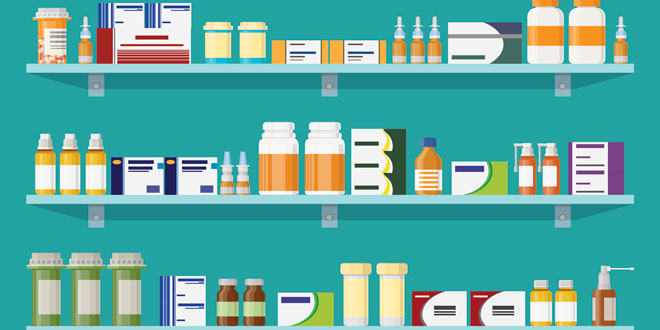Have you ever taken the birth control pill? How about a round of antibiotics? You may have also taken pain relievers or antacids.
Ever heard the phrase that for every action there is always a reaction?
We have all taken prescription and over-the-counter drugs at some point in our lives to treat an infection, a psychological condition, or pain. These medications can provide lifesaving benefits, but are they doing more harm than actual good?
In the U.S., about seven in 10 Americans take prescription drugs; with antibiotics, antidepressants, and painkiller opioids among the most common prescriptions given, according to the Mayo Clinic. Meanwhile, 20 percent of American adults are on five or more prescription medications. These drugs contain several side effects, including depleting the body of certain nutrient from iron and zinc, to selenium and magnesium.
This is especially concerning since most Americans are already suffering from nutrient depletion. Additionally, many conditions that people develop are likely the result of nutrient depletion.
These nutrient depletions occur because some medications block the absorption, storage, metabolism, or synthesis of important nutrients in the body. When these nutrients are blocked or depleted for a long period of time, secondary health problems can develop as a result of those depletions. Nutrients such as vitamin D, magnesium, and zinc are among the most common deficiencies in the U.S. population. Each of these nutrients has an important role in maintaining and protecting health.
Certain medications reduce the absorption of specific nutrients in the gastrointestinal tract by binding to them before they’re absorbed into the bloodstream. The antibiotic, tetracycline, for example, can block absorption by binding with minerals, such as calcium, magnesium, iron and zinc in the GI tract.
As another example, antibiotics are commonly used to fight bacterial infections, like certain fungal infections and some kinds of parasites as well as bladder infections, sinus and ear infections, and strep throat. Antibiotics can eliminate bad bacteria, but they can also deplete good gut bacteria, resulting in digestion problems, including diarrhea, bloating and gas, as well as yeast infections and colitis. This can be aided with fermented foods like unsweetened yogurt and kefir, cultured vegetables like sauerkraut and probiotics. Taking certain probiotics at least two hours before or after antibiotics can help with antibiotic side effects.
Many drugs, such as the stimulant Ritalin are prescribed for attention deficit disorder. These can reduce appetite. This, in turn, decreases the intake of beneficial nutrients. Some antidepressants also tend to have this appetite-reducing effect.
On the flip side, some drugs can deplete nutrients by increasing the desire for unhealthy foods, such as refined carbohydrates. Many of the anti-psychotic drugs and some antidepressants cause insulin resistance or metabolic syndrome, with results in blood sugar swings. People then crave simple carbohydrates, such as sugar, bread and pasta. Steroid drugs, including those given by an inhaler, can create similar issues as well.
Antacids are widely used to help settle an uneasy stomach. They act by neutralizing the acid pH of the stomach. This reduction in stomach acid decreases the absorption of iron, as well as folic acid and zinc. This is especially problematic among the elderly, who often are already low in stomach acid. The consumption of iron-rich foods, such as spinach, cooked beans, dried fruit like prunes, raisins, and apricots are high in iron. However, too much iron can be toxic.
Weight loss drugs and cholesterol-lowering medicines similarly bind to healthy fats, preventing them from being absorbed.
Nutrients are essential to the metabolic activities of every cell in the body. They're used up in the process and need to be replaced by new nutrients in food or supplements. Some drugs deplete nutrients by speeding up this metabolic rate. These drugs include antibiotics (including penicillin and gentamicin) and steroids, such as prednisone, and the gout medication, colchicine.
Other drugs block the nutrient's effects or production at the cellular level. In addition to the intended effect on enzymes or receptors, medications can influence enzymes or receptors that help process essential nutrients. For example, widely prescribed statin drugs block the activity of HMG-CoA, an enzyme that's required to manufacture cholesterol in the body. This action also depletes the body of coenzyme Q10 (CoQ10), which requires HMG-CoA for its production. This has a serious negative impact on muscle and heart health.
Drugs also can increase the loss of nutrients through the urinary system. Any drug that does this can drain the body's levels of water-soluble nutrients, including B vitamins and minerals, such as magnesium and potassium. The major offenders are medications to treat hypertension, particularly the diuretics that reduce blood pressure by increasing the volume of water flushed out of the body.
Dr. Hyla Cass, a medical doctor who treats people with nutrient deficiencies says, “Physicians often tell their patients that symptoms arising from nutrient depletion are simply ‘part of the illness’ or just signs that they’re ‘getting older.’ To make matters worse, physicians frequently try to address the symptoms arising from drug-induced nutrient depletion by prescribing even more drugs, further compounding the problem.”
Please view the infographic below to give you a brief example of how depleted a person can get from taking certain drugs. There are many more drugs that will cause nutrient depletion. So, if you are experiencing any health difficulties, take a look at the medicines you are on and ask your doctor or your pharmacist if there are any nutrients that can be depleted from it.
If they don’t know, then it may be in your best interest to get a test taken to determine if you are deficient in any vitamins, minerals or other nutrients. Perhaps, with some quality supplementation, you can overcome the health issues and even prevent others.
You might also consider giving the Hallelujah Diet a try if you are experiencing a health issue requiring prescription medication. Many have found that a simple dietary change can result in their body no longer requiring the nutrient depleting medication. Click Here to check out some incredible success stories.









